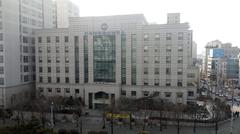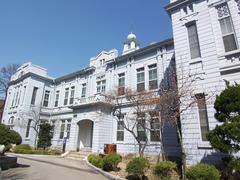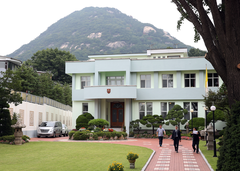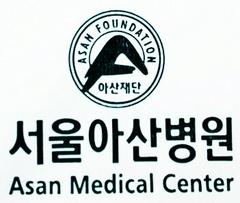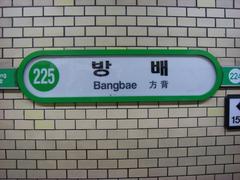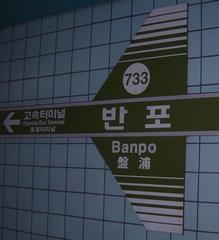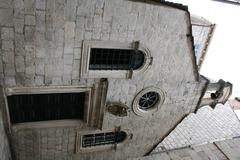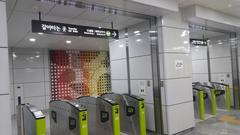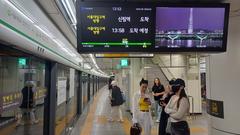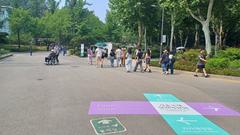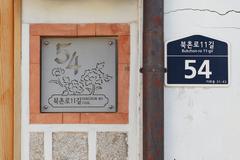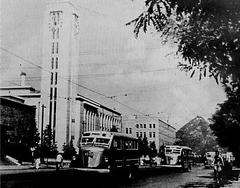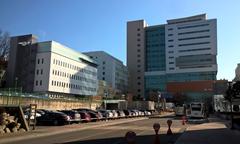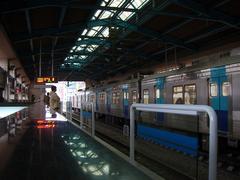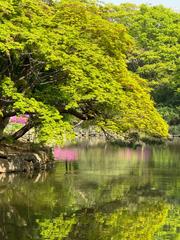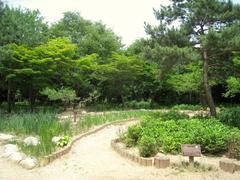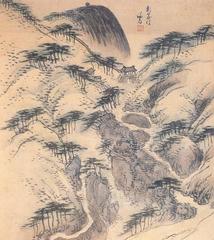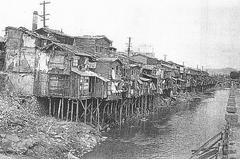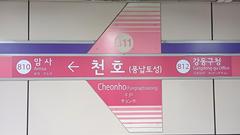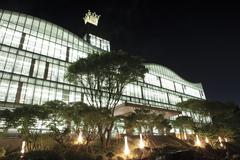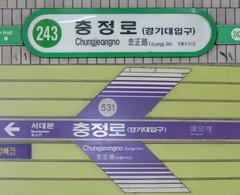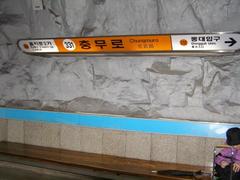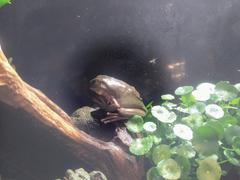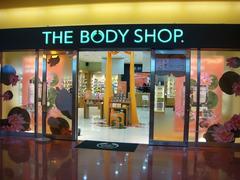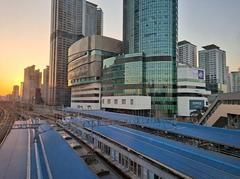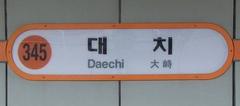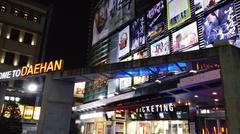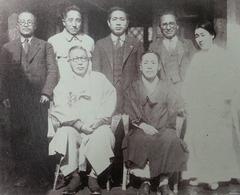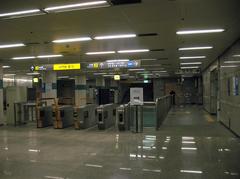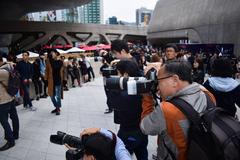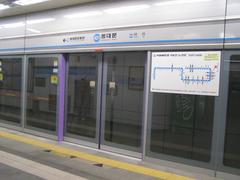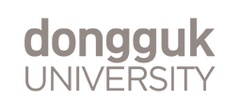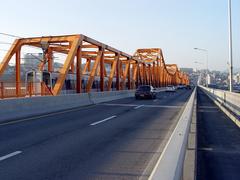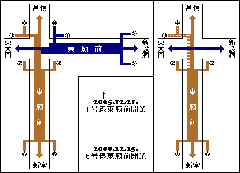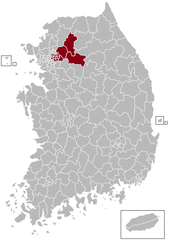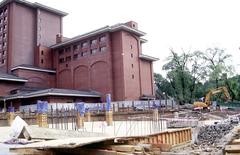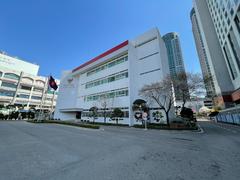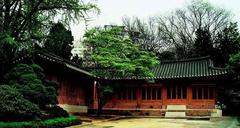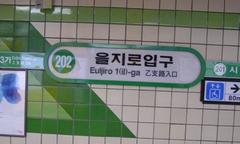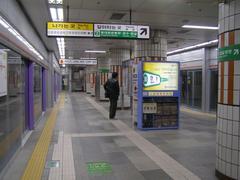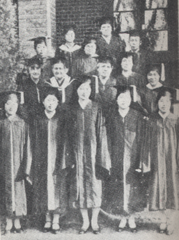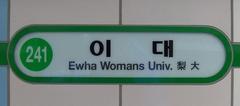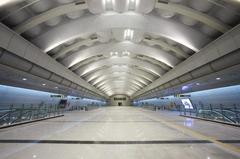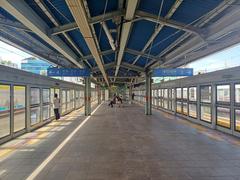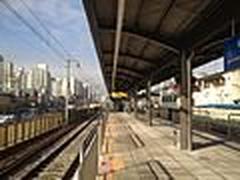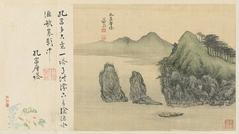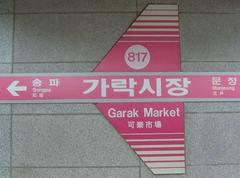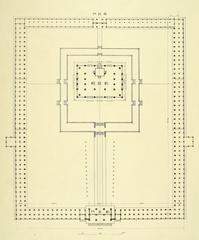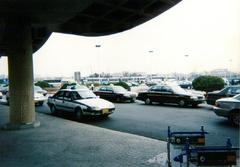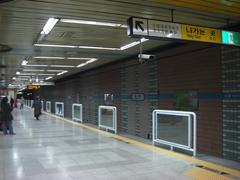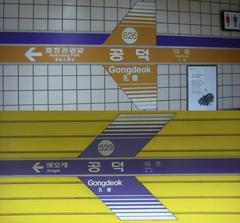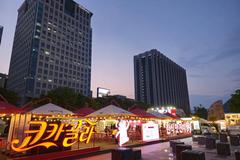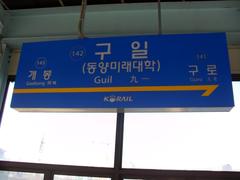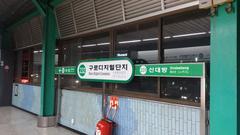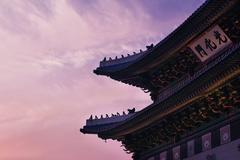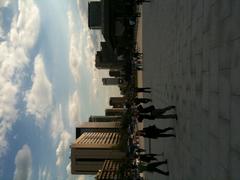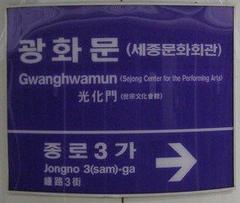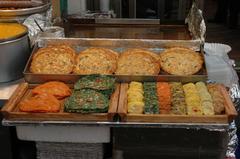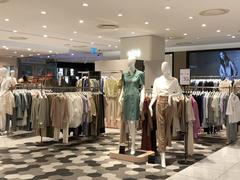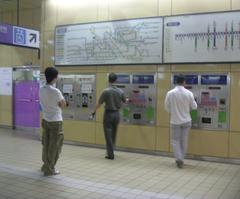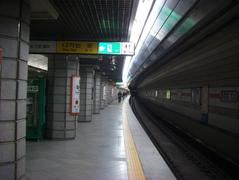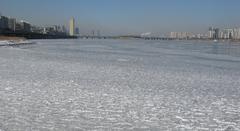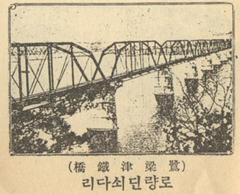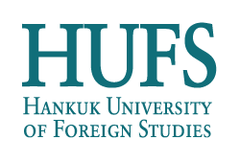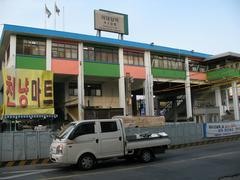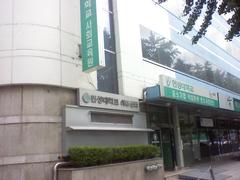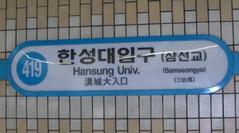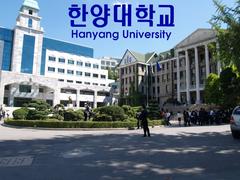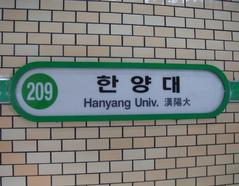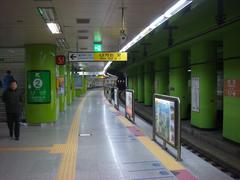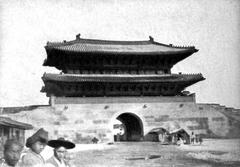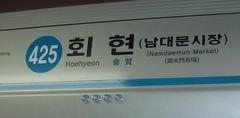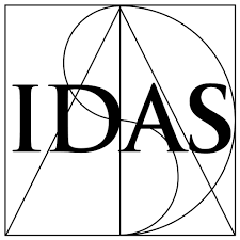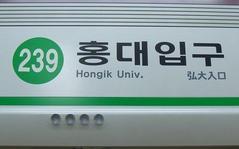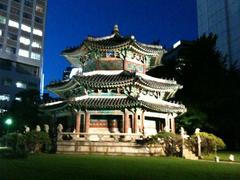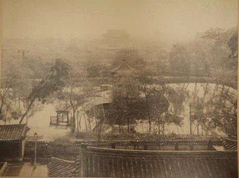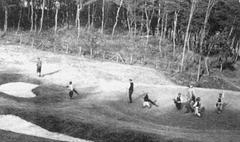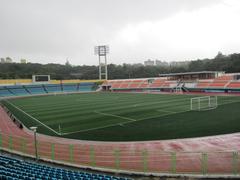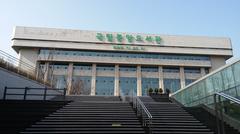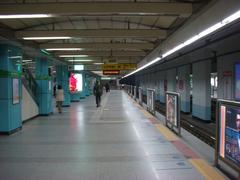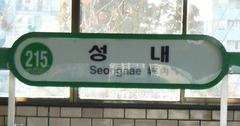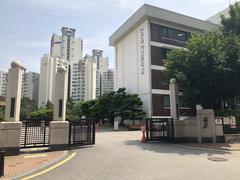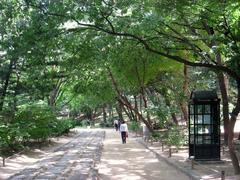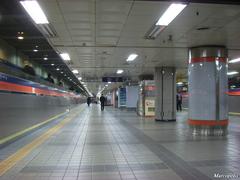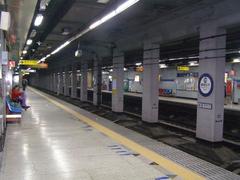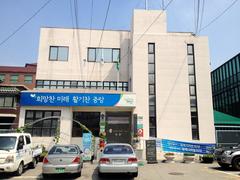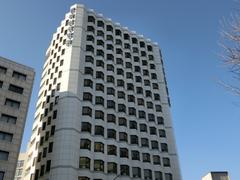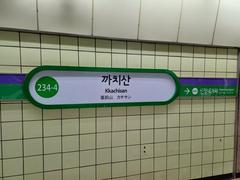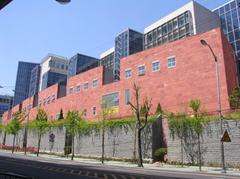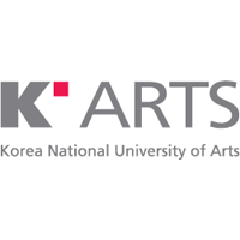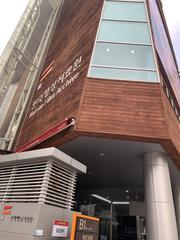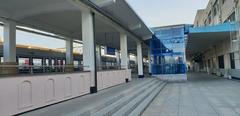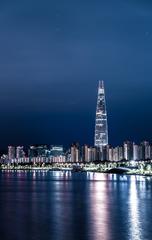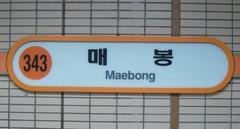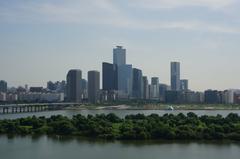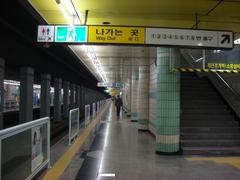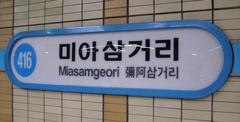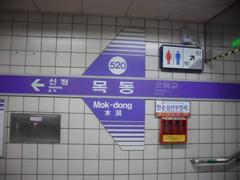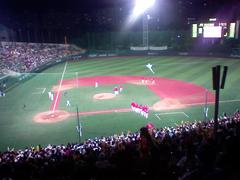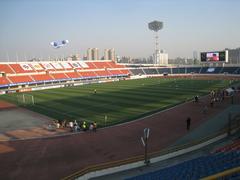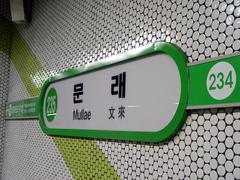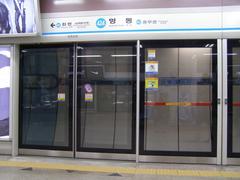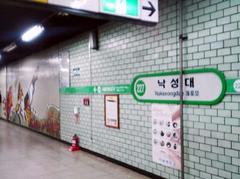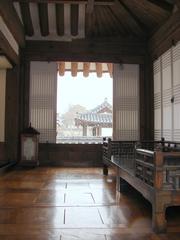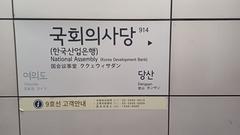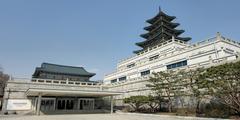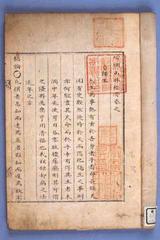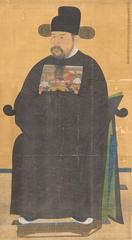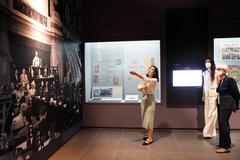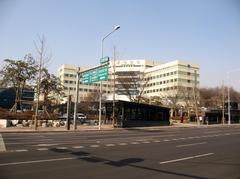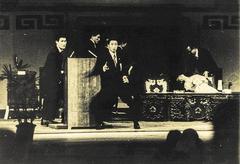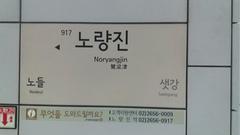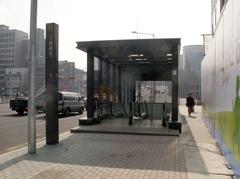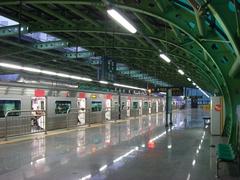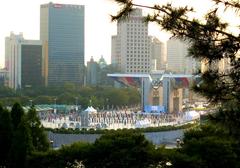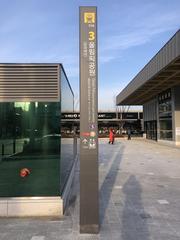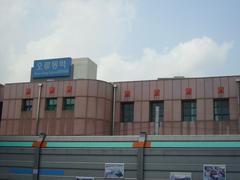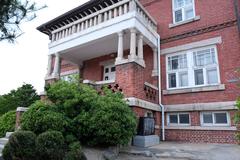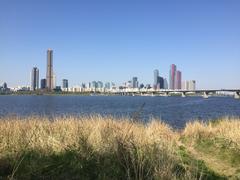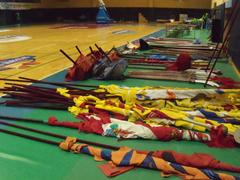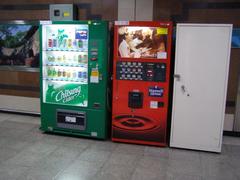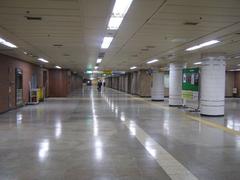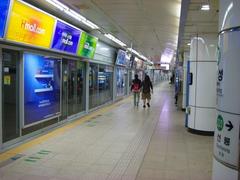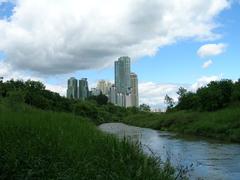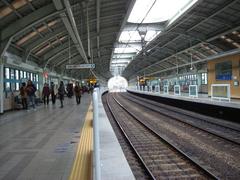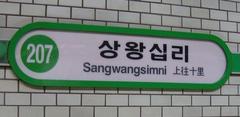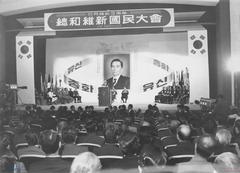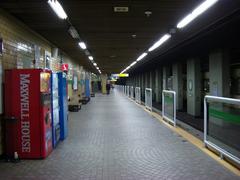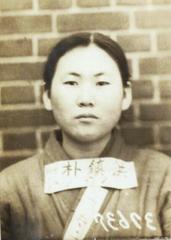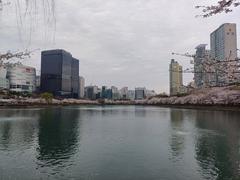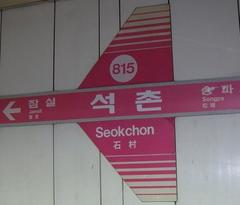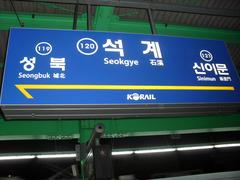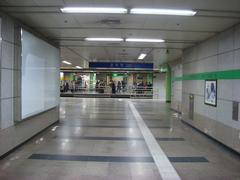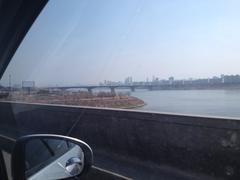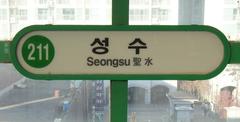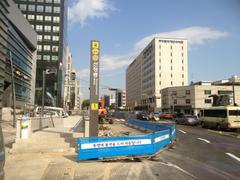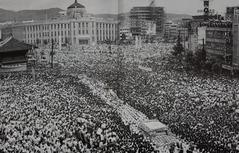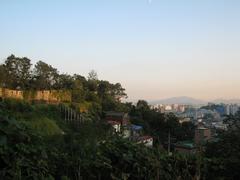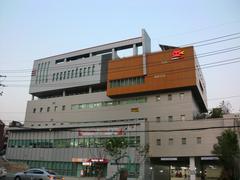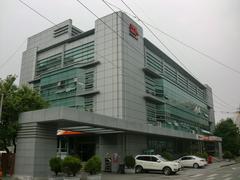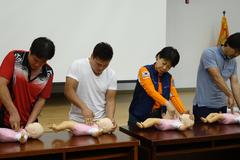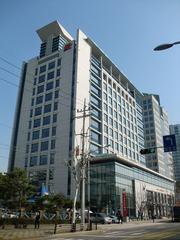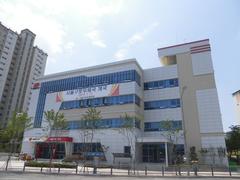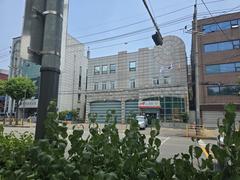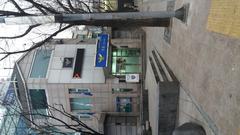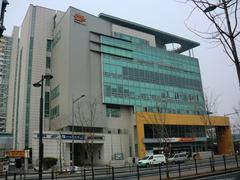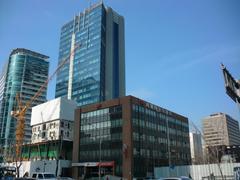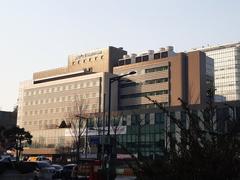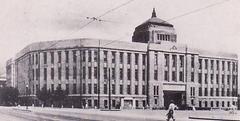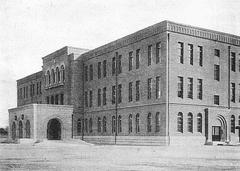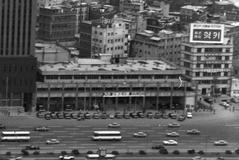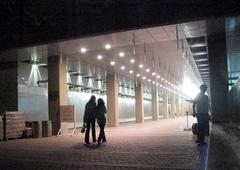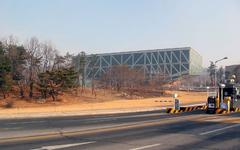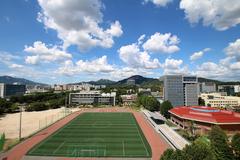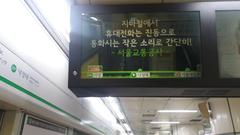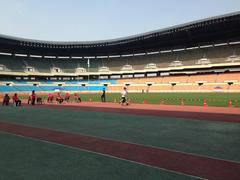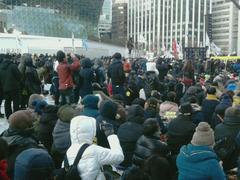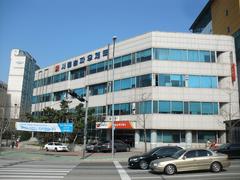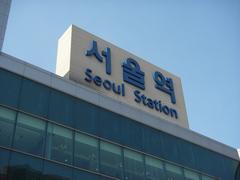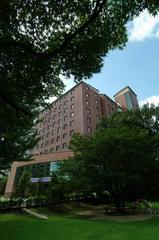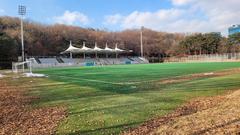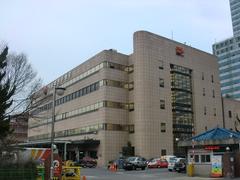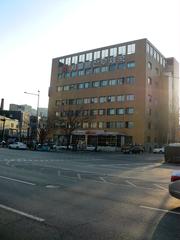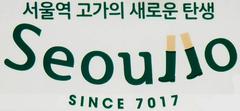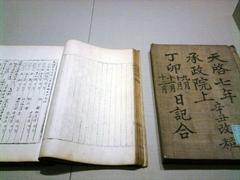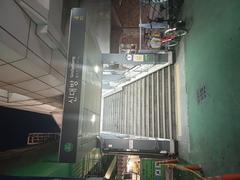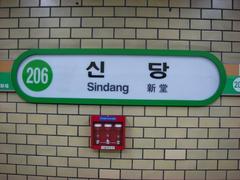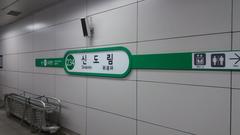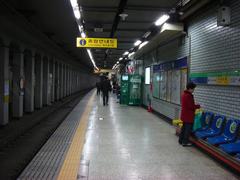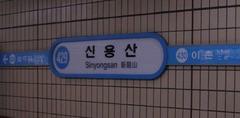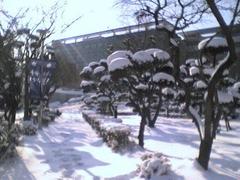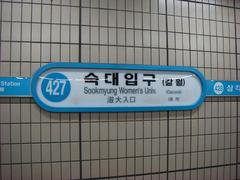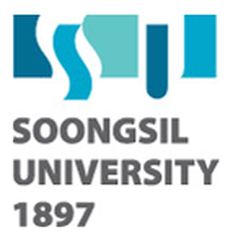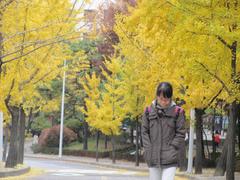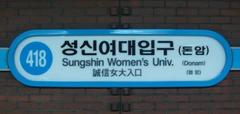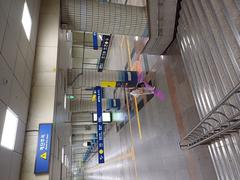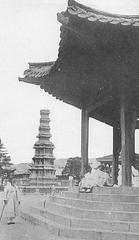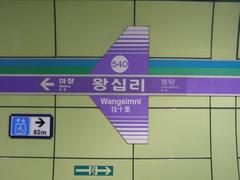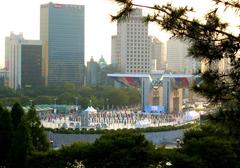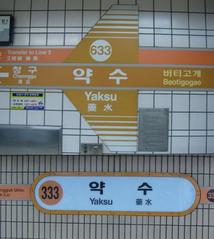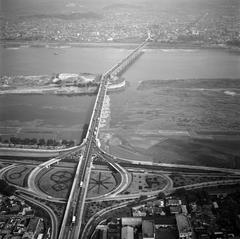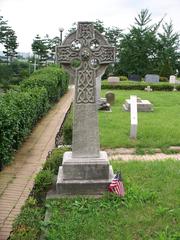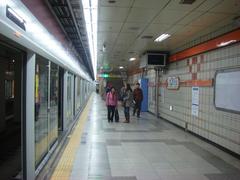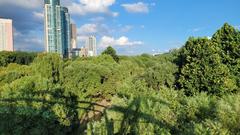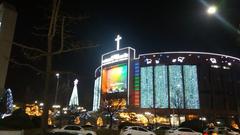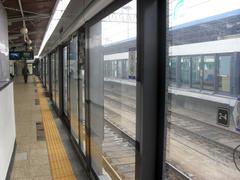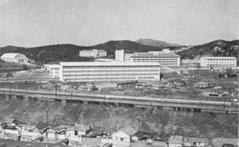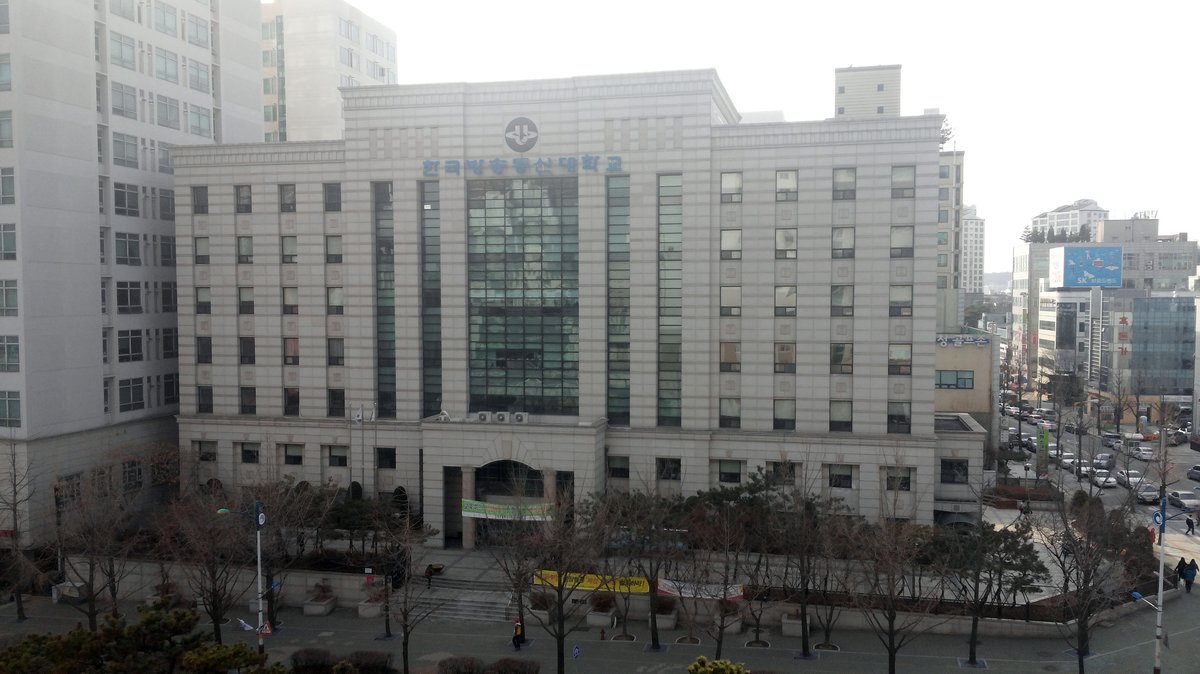
Korea National Open University Visiting Guide – Seoul, South Korea
Date: 14/06/2025
Introduction to Korea National Open University
Korea National Open University (KNOU) stands as a pioneering institution in Seoul, South Korea, renowned for its groundbreaking role in democratizing higher education through distance and open learning. Established in 1972 as the first open university in East Asia, KNOU’s mission has been to provide accessible education to a broad and diverse student body, including working adults, those living in remote areas, and learners seeking flexible academic pathways. The university’s main campus in Seoul is not only a hub of educational innovation but also a meaningful destination for visitors interested in the evolution of South Korea’s academic landscape.
KNOU’s campus blends modern architecture with state-of-the-art digital learning centers, reflecting its commitment to integrating technology into education. Its location near vibrant cultural districts and historical sites like Daehangno, Gyeongbokgung Palace, and Deoksugung Palace further enhances the visitor experience. Whether you are an education enthusiast, history buff, or a curious traveler, a visit to KNOU offers unique insights into South Korea’s journey toward inclusive learning.
For official updates, visitor details, and tour arrangements, refer to the KNOU Official Site.
Contents Overview
- Introduction
- History and Significance of KNOU
- Visitor Information
- Location and Access
- Visiting Hours
- Ticket Information
- Accessibility
- Guided Tours
- Highlights for Visitors
- Historic Campus Buildings
- Digital Learning Center
- Exhibition Spaces
- Photography Spots
- Nearby Attractions
- Travel Tips
- Frequently Asked Questions (FAQ)
- Conclusion
History and Significance of Korea National Open University
Founded as a response to South Korea’s post-war educational needs, KNOU followed in the footsteps of the UK’s Open University to become the second open university in the world. Its establishment marked a significant step toward making higher education accessible and flexible for a wide segment of the population, especially for those unable to attend conventional universities. KNOU remains the largest university by enrollment in South Korea, embodying the country’s drive for lifelong learning and educational equity.
Visitor Information
Location and Access
KNOU’s main campus is situated in Seoul and is easily reachable by public transportation. The campus address and detailed directions can be found on the official KNOU website.
Visiting Hours
- General Hours: Monday to Friday, 9:00 AM – 6:00 PM
- Note: It is advisable to verify current hours or closures via the university’s website or by contacting the administration, as schedules may change during holidays or special events.
Ticket Information
- General Admission: Free
- Special Exhibitions/Tours: Some special events may require advance booking or a fee.
Accessibility
KNOU’s campus is equipped with wheelchair ramps, accessible restrooms, and facilities to accommodate visitors with disabilities.
Guided Tours
Public guided tours are not regularly offered, but group visits can be arranged by contacting the university in advance.
Highlights for Visitors
- Historic Campus Buildings: KNOU’s architecture showcases both modern and historical elements, reflecting its progressive spirit and educational mission.
- Digital Learning Center: Explore innovative educational technology and broadcasting facilities that support KNOU’s renowned distance learning programs.
- Exhibition Spaces: Occasional exhibitions highlight the history of education in Korea and advancements in digital learning.
- Photography Spots: The campus features beautiful gardens and open spaces perfect for photography.
Nearby Attractions
KNOU’s strategic location offers easy access to a range of Seoul’s top attractions:
- Daehangno (College Street): A vibrant cultural district known for its theaters, live performances, and lively arts scene.
- Seoul Grand Park: Home to a zoo, botanical gardens, and amusement park.
- Seodaemun Independence Park: Commemorates Korea’s independence movement and features historical monuments.
- Hongdae District: Renowned for its youthful vibe, street art, indie music, and trendy cafes.
Travel Tips
- Use Seoul’s efficient public transportation (subway and buses) for convenient access to KNOU and nearby sites.
- Wear comfortable shoes for exploring the campus and surrounding attractions.
- Check the KNOU website for up-to-date information on events, exhibitions, and visitor hours.
Frequently Asked Questions (FAQ)
Q: Is there an entrance fee to visit KNOU?
A: No, campus access is free. Special exhibitions or group tours may require booking or a small fee.
Q: Can visitors attend classes or lectures?
A: Most classes are for enrolled students, but occasional public lectures or events may be open to visitors. Check the university’s event schedule.
Q: Is KNOU suitable for those interested in Korean educational history?
A: Yes, KNOU is a leader in open and distance education and frequently hosts exhibitions on Korea’s educational development.
Q: Is parking available?
A: Limited parking is available; public transportation is recommended for convenience.
Exploring Gyeongbokgung Palace
Introduction and Historical Significance
Gyeongbokgung Palace, known as the “Northern Palace,” is a landmark of Seoul’s royal heritage. Built in 1395 during the Joseon Dynasty, it served as the principal palace for centuries and remains the largest of the Five Grand Palaces. Meticulously restored after periods of destruction, Gyeongbokgung exemplifies traditional Korean architecture and is home to the National Folk Museum of Korea. (Official Gyeongbokgung Palace Website)
Visiting Hours & Ticket Information
- March–October: 9:00 AM – 6:00 PM (last entry 5:00 PM)
- November–February: 9:00 AM – 5:00 PM (last entry 4:00 PM)
- Closed: Tuesdays and major holidays
Tickets:
- Adults: 3,000 KRW
- Youth (7–18): 1,500 KRW
- Children under 6: Free
Tickets are available at the gate or online via the Cultural Heritage Administration.
Visitor Experience and Tips
- Free English-language guided tours are available daily.
- Arrive early to avoid crowds, especially on weekends.
- Wear comfortable shoes for exploring extensive palace grounds.
- Photography is allowed in most areas (no flash/tripods).
Nearby Attractions
- Bukchon Hanok Village: Traditional Korean homes.
- Insadong: Traditional crafts and tea houses.
- Cheonggyecheon Stream: Urban strolls and art displays.
Accessibility
Wheelchair ramps and accessible restrooms are available; main gates and some buildings are wheelchair-friendly.
Deoksugung Palace
Location and Significance
Located near City Hall Station, Deoksugung Palace is one of Seoul’s Five Grand Palaces, famous for its unique blend of Korean and Western neoclassical architecture. The palace grounds, serene gardens, and iconic stone-wall road are popular among visitors. (Visit Korea)
Visiting Hours & Admission
- March–October: 9:00 AM – 9:00 PM (last admission 8:00 PM)
- November–February: 9:00 AM – 8:00 PM (last admission 7:00 PM)
- Closed: Mondays
Tickets:
- General: 1,000 KRW
- Discounted: 500 KRW
- Children under 6: Free
Combined palace tickets are available for cost savings.
Visitor Experience
- Guided tours in multiple languages (including English).
- Daily Royal Guard Changing Ceremony at 2:00 PM.
- Key highlights: Seokjojeon Hall, Daehanmun Gate, palace gardens.
Accessibility and Facilities
- Wheelchair accessible with ramps and rest areas.
- Onsite restrooms, cafés, and souvenir shops.
Daehangno (College Street) and Surrounding Historical Sites
Daehangno Overview
Daehangno is Seoul’s arts and culture hub, known for its theaters, live performances, and energetic student atmosphere. Historically significant for its role in social movements, Daehangno bridges contemporary and traditional Korean culture.
- Hours: Most venues open 10:00 AM – 10:00 PM.
- Getting There: Adjacent to Hyehwa Station (Line 4), about a 10-minute walk from KNOU.
Other Notable Nearby Sites
- Changgyeonggung Palace: 15th-century royal palace, open 9:00 AM – 6:00 PM, closed Tuesdays.
- Changdeokgung Palace & Huwon: UNESCO site, known for its Secret Garden tours.
- Bukchon Hanok Village: Preserved traditional homes, open year-round.
- Gwangjang Market: Street food and textiles, 9:00 AM – 11:00 PM.
- Cheonggyecheon Stream: 24-hour urban walking path.
- N Seoul Tower: Panoramic city views, 10:00 AM – 11:00 PM.
- Ewha Womans University & Shopping Street: Modern campus and vibrant shops.
- Dongdaemun Design Plaza (DDP): Contemporary exhibitions and night markets.
Practical Visitor Information
- Accessibility: Ramps, elevators, and accessible restrooms are widely available.
- Tickets: Purchase online or on site; English guided tours are offered at major attractions.
- Transportation: Use T-money cards for buses and subway; Hyehwa Station (Line 4) is nearest KNOU.
- Best Times to Visit: Spring (April–June) and autumn (September–November) for pleasant weather.
- Safety: Seoul is generally safe; emergency numbers are 119 (medical/fire) and 112 (police).
Frequently Asked Questions (FAQ)
Q: Are English tours available at major sites?
A: Yes, English guided tours are offered at Gyeongbokgung, Deoksugung, Changgyeonggung, and Changdeokgung Palaces.
Q: Can I buy tickets online?
A: Online ticketing is available for most palaces and attractions.
Q: Are there vegetarian or halal food options nearby?
A: Yes, Daehangno and surrounding areas have several restaurants catering to vegetarian and halal diets.
Q: Is photography allowed in historical sites?
A: Photography is generally allowed in outdoor spaces; check for restrictions in museums or special exhibitions.
Summary and Final Tips for Visiting Korea National Open University
Korea National Open University embodies South Korea’s spirit of inclusive and lifelong learning. Visitors can explore its historic campus, advanced digital learning facilities, and occasional exhibitions that highlight the nation’s educational progress. The university’s proximity to Daehangno and major historical sites makes it a prime destination for travelers eager to blend education, history, and culture in Seoul.
Enjoy free campus access, guided tours (by arrangement), and accessible facilities for all visitors. Plan your trip during pleasant seasons and use public transportation for convenience. For the latest updates, event schedules, and visitor information, consult the KNOU Official Site and reputable tourism resources. Enhance your journey by downloading the Audiala app for expert travel guides, audio tours, and insider tips.
Sources and Further Reading
- Visiting Korea National Open University (KNOU): A Unique Educational Landmark in Seoul, 2025, Unknown Author (https://engknou.knou.ac.kr/engknou/index.do)
- Exploring Gyeongbokgung Palace: Visiting Hours, Tickets, and Historical Significance in Seoul, 2025, Unknown Author (http://www.royalpalace.go.kr)
- Visiting Deoksugung Palace: A Historical Gem in Seoul, 2025, Unknown Author (https://english.visitkorea.or.kr/enu/ATR/SI_EN_3_1_1_1.jsp?cid=264354)
- Visiting Daehangno and Nearby Historical Sites in Seoul: A Complete Guide, 2025, Unknown Author (https://english.visitseoul.net/)
